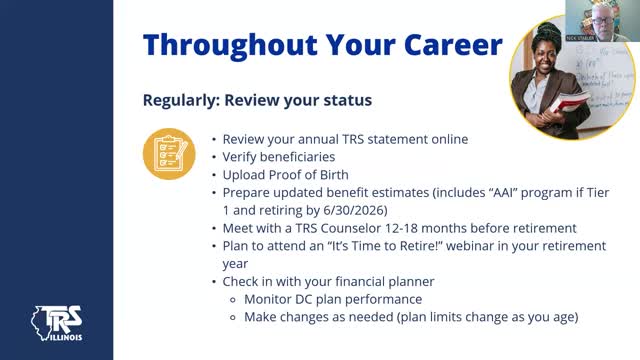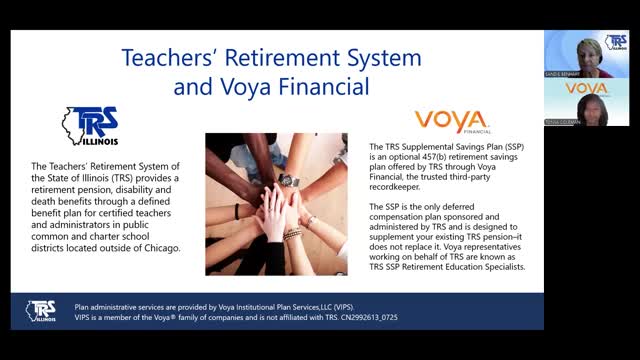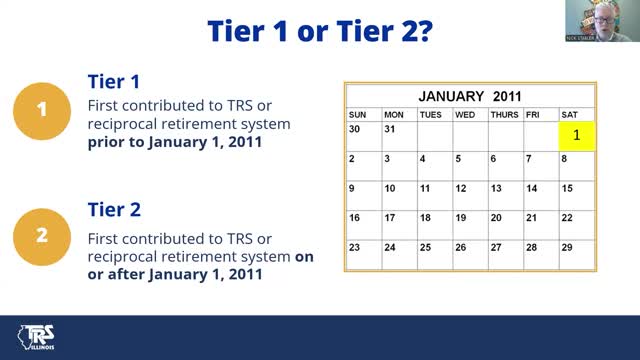Article not found
This article is no longer available. But don't worry—we've gathered other articles that discuss the same topic.

TRS clarifies post‑retirement work rules, TRIP/TRAIL health coverage and Social Security caveats

TRS explains disability payments, survivor buckets and beneficiary options

Voya outlines TRS supplemental 457(b) savings plan: contribution limits, investment options and enrollment steps

